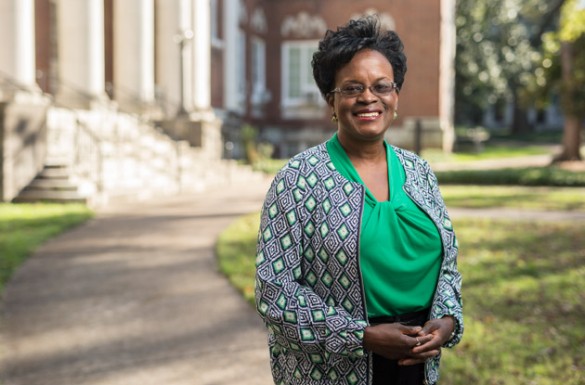
HIV diagnoses are disproportionately high among young African American males, especially those who engage in sexual activity with men (MSM). A new $1.5 million Vanderbilt study supported by the Department of Health and Human Services’ Substance Abuse and Mental Health Services is addressing this troubling trend. The study is a unique partnership with First Response Center, a nonprofit HIV/AIDS prevention and care organization run by Metropolitan Interdenominational Church in North Nashville. FRC has been serving this population for more than 16 years.
“Interventions and services are out there, but the numbers are still rising,” said Sandra L. Barnes, lead investigator of the study. “That suggests there is a disconnect somewhere. How do you establish trust and reach a demographic that has a history of being marginalized?”
The study, “Black Young Men Building Capacity,” was developed by Barnes, a professor in the Department of Human and Organizational Development at Vanderbilt’s Peabody College of education and human development. Over the next five years, Barnes aims to reach 5,000 members of the target population of black males who have sex with males, known as MSM. According to the Centers for Disease Control and Prevention, MSM account for 75 percent of new HIV diagnoses among 18- to 24-year-old black men.
“The overall goal of BYMBC is to educate, equip and empower members of the target population to access prevention and testing services,” Barnes said. “BYMBC acknowledges and builds on their existing strengths, knowledge and skills.”
Partnering with First Response Center, Barnes will implement and augment existing interventions, including prevention education, risk reduction counseling, case management/alcohol and drug coordination, support groups, HIV testing, hepatitis testing and spiritual support.
The study will increase awareness of safe sexual practices, deliver prevention information, build peer support systems and promote the importance of reducing risk and maintaining health and wholeness.
“The interventions are unique because they include positive racial identity and positive sexual identity development,” Barnes said. “We are going to partner with young black males to enhance their existing capacities so they can make healthier decisions. We will also be creating a counter-narrative to combat negative stereotypes.”
As part of the study, 250 men will participate in enhanced programs and services based on a combination of evidence-based interventions specifically developed for the target population that complement the White House’s National HIV/AIDS Strategy.
“The prevention program will provide an affirming, engaging and liberating space for young men to develop skills that enable them to make health-promoting choices,” the Rev. Stephanie Thompson, First Response program coordinator, said.
Social media also will be an important part of outreach. Social platforms such as Twitter and Facebook will be used to share culturally appropriate public service announcements designed to reach those who may be reluctant to seek help or have other barriers to accessing needed services.
“In the past, society hasn’t done a good job of meeting the needs of this population,” Barnes said. “Through social media, we will be creating a positive support system that can reach this underserved population, which may be hesitant to seek support through traditional channels.”
In five years, Barnes hopes to see a reduced onset of substance use, fewer new HIV and hepatitis infection diagnoses, and an increase in safe sexual practices among the target demographic.
“I am a social activist. I endeavor to engage in research that is professionally and personally satisfying to me and enriches the greater community,” Barnes said. “If we can save a life, you can’t get any better than that.”
Watch a video of Sandra Barnes discussing the research on Channel 5 Plus.